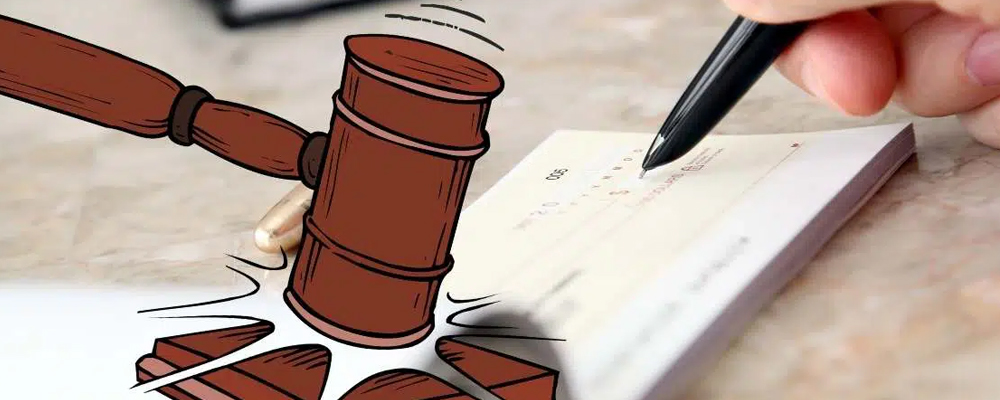Negotiable Instrument nowadays is used in day to day commercial matter and it is considered as one of the most convenient modes for the transfer of money, as there is the rapid growth in the development of banking sector thus cheques became one of the best Negotiable instrument, but there were certain drawbacks too many issues were cited as the person issues the cheque but the amount was not sufficient is the payee account and thus the drawee need to be protected from such misuse and so the need was felt to make the dishonor of cheque as a punishable offence, and section 138 to 142 were inserted by the Banking Public Financial Institutions and Negotiable Instruments act was amended in year 1988, the drawer was made liable for the punishment if the case is bounced due to insufficient amount of fund in the particular account and also the drawer rights were safeguarded to prevent from the harassment if drawer done it honestly.
Basic ingredients of section 138 of NI Act
- The cheques must be drawn for the discharge of the liability
- Cheque must be presented within the valid period of time
- Cheque must be returned unpaid
- Must be insufficient funds in the particular account
- Cheque if dishonoured must if informed to the drawer by the medium of Notice within 30 days
- And the drawer fails to pay the amount or make the payment within the 15 days of the notice.
Need A Legal Advice
The internet is not a lawyer and neither are you. Talk to a real lawyer about your legal issue

As per the heading how many Cheque can be clubbed in one compliant under the section 138 of the NI Act
As per my research and information not more than three cheques can be clubbed in one complaint under the section 138 of the if the act committed is not in the series but is in the form of same transaction and should be done by the same person, NI Act but if the one of the act committed and is in the series and such so act is connected is such a way that it together from the same transaction and is done by the same person he may be charged and should be tried for the one trial for every such offence ( as per Sec 220(1) Cr. P.C.
Section 220 Cr.P.C enables the provision if the series of the act are connected together and forms the same transaction the particular accused can be tried under the one case.
Let’s understand this with a Case Law
S. KAMAKOTI V.S. SARFARAZ NAWAZ C.C.NO.642/2016 KARNATAKA HIGH COURT:-
In this case six complaints were lodged by the respondent under the section 200 Cr.P.C. R/W Section 138 of Negotiable Instrument Act, 1881, the petitioner alleged that he paid the sum of Rs 9 lakh approx. as a loan to the accused for the repayment of the loan six different cheques were issued by the accused to the petitioner, and thus all the six cheques were presented before the bank for the collection of the amount and those cheques were returned by the bank person thus the petitioner filed six different complaint before filing the complaint six notice to pay the amount was sent to the accused and the accused reply to such notice was not satisfactory, thus the complaint alleged that the accused has committed the offence under the section 138of the NI ACT for which he need to be punished.
The trial judge in this matter held that the complainant and the accused are one therefore to avoid such multiple trials there should be one joint trial and all the six cases should be clubbed together.
In Ashutosh Humnabadkar v. Continental Device India Ltd, Cr M C 1184/2014 the High Court of Punjab and Haryana allowed to clubb 8 of the dishonored cheque between the same parties and the court also said that the eight cheques are in the course of same transaction and are also among the same person and the offence is of the nature of the same kind.
Conclusion
As per the above article the court can order the complainant to club the cheque no matter what is the number only if the offence is done by the same person in the same transaction and should be of same nature and if there is different person and there is different transaction thus then not more than three cheques can be clubbed together.





 Talk to a Lawyer
Talk to a Lawyer